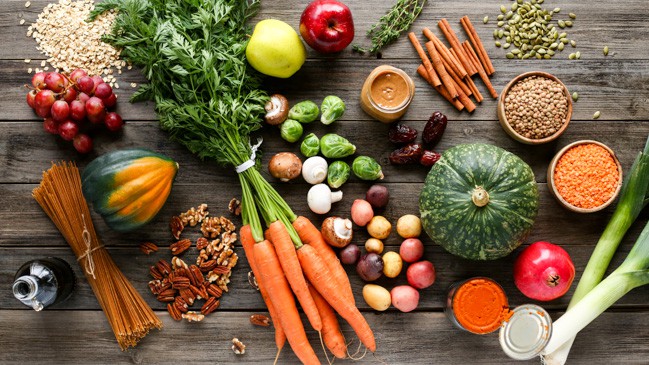What is veganism?
Simply put, veganism is abstinence from the use of animal products in both diet and lifestyle.
A great explanation of ethical veganism comes from the International Vegetarian Union, "Veganism may be defined as a way of living that seeks to exclude, as far as possible and practical, all forms of exploitation of, and cruelty to, animals for food, clothing, or any other purpose. In dietary terms, it refers to the practice of dispensing with all animal produce, including meat, fish, poultry, eggs, animal milks, honey, and their derivatives."
Why people adopt vegan lifestyles
There are multiple reasons someone might choose to adopt a vegan lifestyle. Some of the ethical reasons people choose to lead a vegan lifestyle include:
- animal welfare issues and the objection to using animals as commodities
- environmental issues directly associated with animal agriculture (such as air pollution and contaminated drainage from factory farming into water supplies) and to help lessen our over consumption of resources including land, water, and fossil fuels
- adopting veganism as a part of the solution to world hunger by more efficiently using our planet's food resources
A dietary vegan may choose to follow a plant-based diet for health reasons and may not choose to avoid animal products in other aspects of their lives.
What do vegans eat?
There are so many amazing vegan foods out there, you may be surprised by just how many options there are! Here's just a few examples of some of the foods vegans eat:
- every type of fruit: apples, oranges, berries, mangoes, pineapple, grapes, papaya
- every type of vegetable: asparagus, kale, broccoli, carrots, celery, zucchini, spinach
- nuts and seeds: almonds, cashews, walnuts, pumpkin seeds, sunflower seeds, peanut butter, almond butter
- carbohydrates: potatoes, pasta, bread, bagels, pitas, wraps, rice, quinoa
- beans and legumes: tofu, edamame, hummus, black beans, chickpeas, lentils
- non-dairy milks: coconut milk, almond milk, soy milk, hemp milk, oat milk
- chocolate: many varieties of dark chocolate as well as non-dairy milk chocolates made from coconut, soy, or rice milk
- junk food: fries, onion rings, chips, cookies, cake, candy (check the ingredients, many of these products are only incidentally vegan)
- dairy alternatives: coconut ice cream, almond and coconut yogurt, coffee creamers, vegan cheese and cream cheese, vegan butter
- meat alternatives: tempeh bacon, veggie burgers, deli sandwich slices, vegan sausages, holiday roasts
As interest in the vegan movement continues to grow, being vegan becomes easier every day. Some of North America's wealthiest investors are getting behind vegan start-ups and companies, and for good reason! As the demand for meat steadily decreases [source], the amount of Americans identifying as vegan has more than doubled in the last 4 years [source 1 & 2]. The food industry is offering more and more delicious and compassionate vegan alternatives as recipe developers, chefs, and food bloggers create new ways to veganize popular foods. Search for veganized versions of your favourite dishes and you'll be amazed by what you'll find!
What is excluded in a vegan lifestyle?
All animal products are excluded from a vegan diet, this includes: meat, poultry, seafood, dairy, eggs, honey, and their by-products.
A vegan lifestyle includes avoidance of animal products in day-to day life as well as diet. This includes but is not limited to:
- products tested on animals
- animal derived fabrics such as silk or wool
- leather, suede, down, and fur
- personal care products containing animal ingredients (beeswax, keratin, lanolin, etc.)
- animals as entertainment (circuses, rodeos, etc.)
It's important to stress that it is virtually impossible to avoid all animal products, going back to the explanation of veganism from the International Vegetarian Union, "Veganism may be defined as a way of living that seeks to exclude, as far as possible and practical, all forms of exploitation of, and cruelty to, animals for food, clothing, or any other purpose." Veganism isn't about the label.

